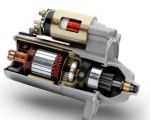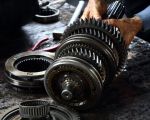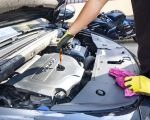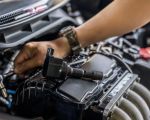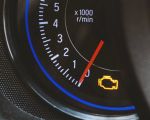- 1-understanding-car-engine-hesitation
- 2-common-causes-of-engine-hesitation
- 3-checking-the-fuel-system
- 4-inspecting-the-ignition-system
- 5-examining-the-air-intake-and-sensors
- 6-importance-of-regular-maintenance
- 7-when-to-seek-professional-help
1. Understanding Car Engine Hesitation
Car engine hesitation is a frustrating performance issue that occurs when your vehicle momentarily loses power or stumbles during acceleration. This symptom often feels like a brief lag or jerk, impacting your driving experience and sometimes compromising safety, especially in heavy traffic or on highways.
Understanding how to fix car engine hesitation starts with recognizing that it’s a warning sign indicating the engine is not receiving the proper air, fuel, or spark needed for smooth operation. Hesitation can result from a variety of mechanical or electronic issues, so identifying the underlying cause is essential before attempting any repairs.
In many cases, hesitation is manageable and can be fixed without replacing major components. Let’s explore common causes and actionable solutions that can help restore your car’s performance.
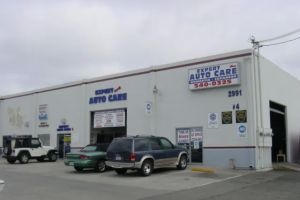
Expert Auto Care
2991 Grace Ln #4, Costa Mesa, CA 92626, USA
2. Common Causes of Engine Hesitation
Several factors can lead to engine hesitation, ranging from minor problems to serious mechanical failures. Here are the most frequent causes:
- Fuel delivery issues: clogged fuel filters or failing fuel pumps restrict proper fuel flow.
- Ignition system faults: worn spark plugs, bad ignition coils, or faulty wires can cause misfires.
- Air intake restrictions: dirty air filters or malfunctioning sensors can upset air-fuel mixture.
- Vacuum leaks: leaks in vacuum lines affect engine vacuum pressure, causing hesitation.
- Throttle problems: a dirty or faulty throttle body can interrupt acceleration.
Identifying the cause involves a systematic approach to diagnose the fuel, ignition, and air systems, which we will discuss in the following sections.

Junior Auto Body Solutions LLC
10409c Merrick Blvd, Jamaica, NY 11433, USA
3. Checking the Fuel System
The fuel system plays a crucial role in engine performance. If fuel flow is inadequate or inconsistent, hesitation is likely to occur. Start by inspecting the fuel filter, which traps debris and prevents contaminants from reaching the engine. A clogged fuel filter reduces fuel pressure and starves the engine.
Replacing the fuel filter is often a straightforward and cost-effective fix. Additionally, the fuel pump should be tested for proper pressure output. A weak or failing pump cannot supply sufficient fuel, leading to stalling and hesitation.
Using fuel system cleaners or additives may help clear minor blockages within fuel injectors, restoring smoother flow and better combustion.
4. Inspecting the Ignition System
The ignition system ignites the air-fuel mixture inside engine cylinders, so any faults here directly affect performance. Worn spark plugs with deposits or erosion produce weak sparks that cause incomplete combustion and hesitation.
Replacing spark plugs according to your manufacturer’s recommended intervals is key. Ignition coils and spark plug wires should also be checked; cracks or shorts reduce spark strength. A misfire caused by ignition faults can be diagnosed using an OBD-II scanner or by listening for irregular engine sounds.
Proper maintenance and timely replacement of ignition components often resolve hesitation problems.
5. Examining the Air Intake and Sensors
Clean air is vital for efficient combustion. A dirty or clogged air filter restricts airflow and disrupts the balance of air and fuel. Replacing or cleaning the air filter regularly ensures optimal performance.
Modern vehicles rely on sensors such as the Mass Air Flow (MAF) sensor and the Oxygen (O2) sensors to regulate fuel injection. Malfunctioning sensors send inaccurate data to the engine control unit, resulting in poor fuel mixture and hesitation.
Cleaning the MAF sensor or replacing faulty sensors can restore proper engine function. Diagnostic tools can help pinpoint sensor-related issues quickly.
6. The Importance of Regular Maintenance to Prevent Hesitation
Many causes of engine hesitation stem from neglecting routine maintenance. Regular oil changes, air and fuel filter replacements, and scheduled spark plug servicing keep your engine running smoothly.
Routine inspections allow early detection of potential issues like vacuum leaks or throttle body buildup before they cause hesitation. Maintaining clean engine components and using high-quality fuel also reduce the likelihood of performance issues.
Consider establishing a maintenance schedule aligned with your vehicle’s manufacturer recommendations, and stick to it diligently.
7. When to Seek Professional Help for Engine Hesitation
If after troubleshooting common areas your car engine hesitation persists, professional diagnostics may be necessary. Certified mechanics have specialized equipment to identify complex issues such as faulty fuel injectors, electronic control problems, or internal engine damage.
Ignoring hesitation can lead to increased fuel consumption, engine damage, and unsafe driving conditions. Professional repair services, like those offered by Rescue & Towing, can provide timely assistance, ensuring your vehicle runs reliably and safely.
In emergency situations, reliable towing services are critical to transport your car safely to a trusted repair shop.
Final Thoughts and Practical Steps to Fix Car Engine Hesitation
Engine hesitation is a common yet manageable issue that, when addressed promptly, can restore your vehicle’s performance and prolong its lifespan. By understanding the causes—fuel system problems, ignition faults, air intake restrictions, and sensor issues—you can take practical steps to fix car engine hesitation effectively.
Start with basic checks and maintenance, and if problems persist, don’t hesitate to seek professional help. For U.S. drivers, Rescue & Towing offers expert assistance and guidance to keep your vehicle in optimal condition.
Take action today by scheduling maintenance, inspecting your engine systems, and contacting trusted services to ensure a smooth and safe driving experience free from hesitation.













